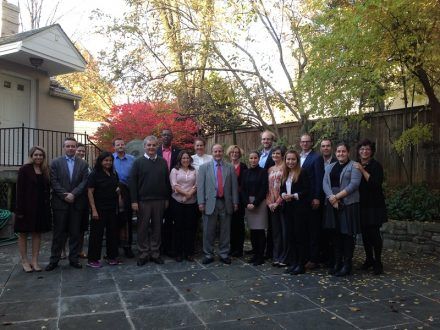PRI participates in expert consultation on children in detention with UN Special Rapporteur on Torture

On Tuesday this week, PRI took part in an Expert Consultation on Juveniles Deprived of their Liberty hosted by the UN Special Rapporteur on Torture, Professor Juan Méndez, at the American University Washington College of Law in Washington DC.
30 experts attended the consultation to discuss legal standards, best practices, and an array of topics pertaining to the prohibition of torture and other cruel, inhuman, or degrading treatment or punishment of juveniles deprived of their liberty.
PRI was represented by its Regional Director in Central Asia, Saule Mektepbayeva, Her presentation made the following key points, drawing on the situation for children deprived of their liberty in Central Asia.
- Having only a limited number of minors in penitentiary institutions does not lead to increased attention to their needs. In fact the opposite is often the case: when countries have a relatively small number of minors in the penitentiary institutions (there are under 200 in Kazakhstan and less than 50 in Tajikistan and Kyrgyzstan, for example), their interests and needs are often forgotten. There is only one penitentiary detention facility for juveniles in Kazakhstan, Kyrgyzstan and Tajikistan respectively. This aggravates the problems which children have in detention because children are detained so far from their families and services. In big countries like Kazakhstan, families need to travel thousands of kilometres to visit their kids and necessary services cannot be organised easily.
- In Central Asia, while separation of children from adults in detention is provided for in national legislation, in practice, it is still considered a desirable practice to have an adult in the juvenile cells in pre-trial detention facilities. Prison staff justify this practice by the need ‘to keep discipline’ and prevent violence among juveniles. For the same reason women adult prisoners are kept in the special wings for girls in women prisons.
- Solitary confinement in disciplinary isolators is widely used in Tajikistan and Kyrgyzstan, although it was removed from the new Criminal Executive Code (adopted in 2014) in Kazakhstan. As a part of advocacy work on ending solitary confinement, we need to give clear and comprehensive guidance to governments on the range of alternative disciplinary measures available. The aims and uses of disciplinary measures also need to be reviewed as they are often used for only minor infractions of the rules. Prison staff – in another legacy from the Soviet era – believe that any demonstration of leadership among detainees should be prevented and punished, but many psychologists believe that giving opportunities to take responsibility and show leadership can support the rehabilitation of children and young people.
- Educational and restorative programmes for juveniles in penitentiary facilities are particularly poor in Central Asia. Children have no access to some subjects/lessons and opportunities for higher education are extremely limited. Professional education is limited to unpopular and poorly-paid jobs.
This expert consultation will inform a new thematic report by the UN Special Rapporteur on the use of torture and other cruel, inhuman or degrading treatment or punishment in the context of juveniles deprived of their liberty.